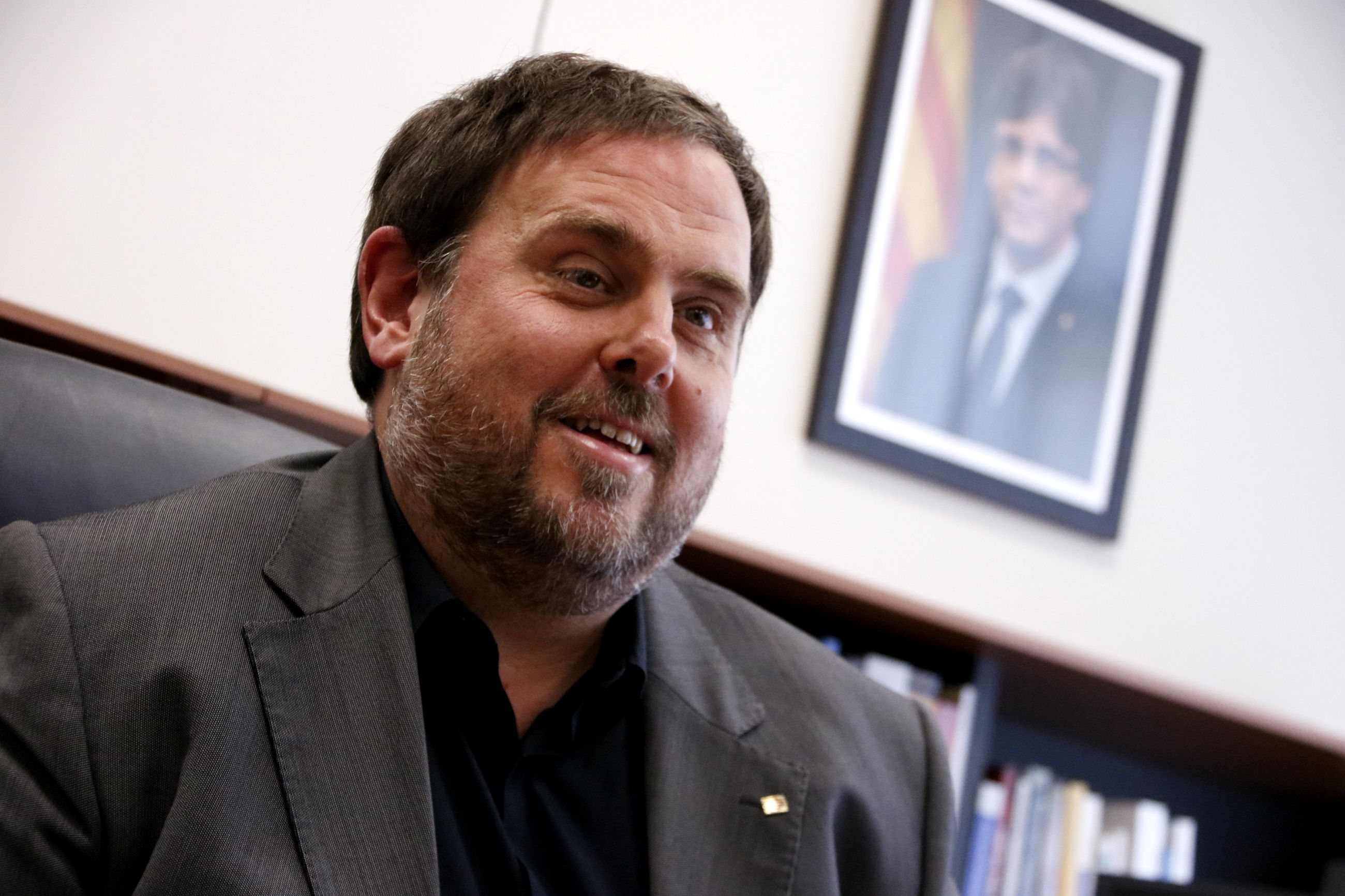Acting Catalan vice-president, Oriol Junqueras, will this week request a transfer to a prison in Catalonia and permission to attend the investiture debate of the next Catalan president. Sources from Junqueras's defence have explained their new strategy to El Nacional.
Junqueras's lawyer, Andreu Van den Eynde has prepared a strategy which goes through Catalonia to end in Europe presenting the vice-president's case before the European Court of Human Rights in Strasbourg. He no longer plans to appeal again the decision of preventive detention without bail to the instructing magistrate, Pablo Llarena, because there is now nothing that would guarantee that the judge would release Junqueras after last week's refusal by the Supreme Court's Penal Chamber. "I will request it when there's a scenario of plausible progressiveness." Van den Eynde is clear what the Supreme Court's message is, summarised in a single sentence: "They want to know what he'll do politically".
The lawyer admits that "accepting the [Spanish] Constitution some have left [prison] and others haven't", and, as such, will no longer base everything on statements nor on testimony before a judge, but on the facts.
At a time when talking about dialogue between Catalonia and Spain seems to lead nowhere, because the Spanish government has made it clear that it doesn't want to talk, everything hangs on seeing what political actions Junqueras would take if in government. It's clear that that can only be known after the investiture and the formation of the new Catalan executive, which Junqueras hasn't given up on. That means the first step is to bring the vice-president closer. To bring him from Madrid and manage to get him moved to a Catalan prison to mean he can be present at the investiture debate and any other debates necessary to fulfil his role as a political representative of the people. This week, on Tuesday, or Wednesday at the latest, his defence will request the transfer and the permission to leave prison and attend the necessary debates. This request will be made to the instructing magistrate, Pablo Llarena, who on Thursday is scheduled to hear further testimony from the acting Interior minister, Joaquim Forn, and from Jordi Sànchez and Jordi Cuixart.
For the defence, it's key that the judge sees that Oriol Junqueras's plans for government don't include reoffending. "If he's president and says what he wants to do, they'll see that the risk has reduced," says the lawyer. "The key is that they want to know what political role he has," he adds. For the defence, "on a legal level, the pressure is brutal if Junqueras is president".
The other step looks to Europe. Junqueras's defence is preparing the formalities to take his case to the European Court of Human Rights in Strasbourg. To do so, first they have to ask Spain's Constitutional Court for a writ of amparo, an appeal for the protection of constitutional rights. That could slow down the process of taking his case to Europe. The lawyer hopes that the Spanish court won't take too long to give its reply, but knows they might well.
Third time's the charm
No one now will bet on the Supreme Court and on the four prisoners being released on bail.
Oriol Junqueras has already had two appeals rejected. One presented to Pablo Llarena in November, and the second this week.
The first was resolved on 4th December, the day the election campaign started in Catalonia, keeping the vice-president, Interior minister, Joaquim Forn, and the 'Jordis' in prison, whilst the other imprisoned ministers left on bail. Llarena had called them to court on Friday 1st December, but didn't announce his decision until the following Monday. For the ministers who were let free, bail was set at 100,000€ (£88,000, $118,000) each.
That decision could be appealed. That was the path taken by Forn, Sànchez and Cuixart, who will testify again on Thursday. Junqueras, on the other hand, opted for the writ of amparo path through the Supreme Court's Penal Chamber. A different courtroom evaluated whether the precautionary measure of preventive detention was suitable or should be overturned. But the three new judges, following the public prosecutor, evaluated the facts and ended up focusing on the possibility that Oriol Junqueras, once part of a new Catalan government, would persist in the idea of proclaiming the Catalan republic. They didn't give credence to his statement supporting dialogue nor his convictions as a man of peace and believer, attributing him with some of the responsibility for the violence that the police says took place in the gatherings on 20th September in front of his Economy ministry.

